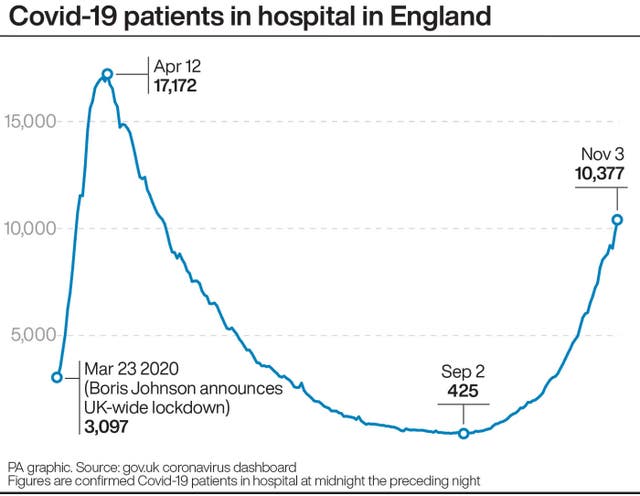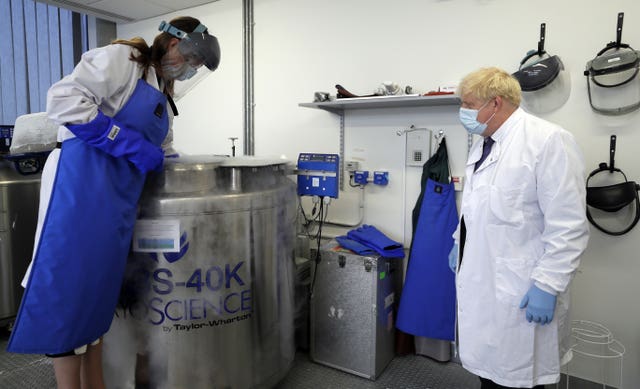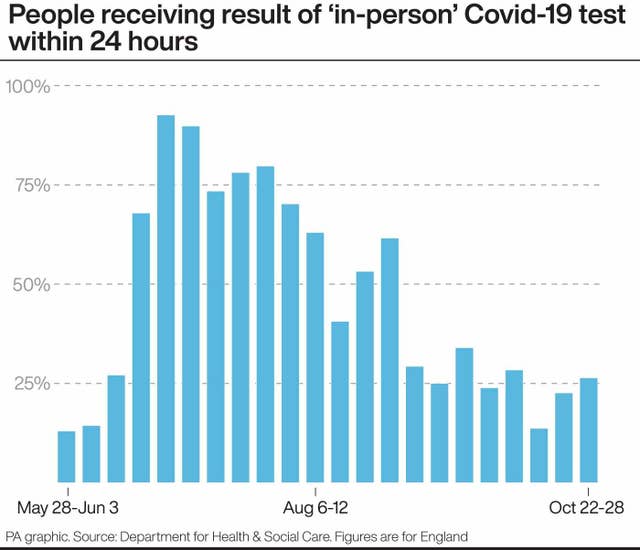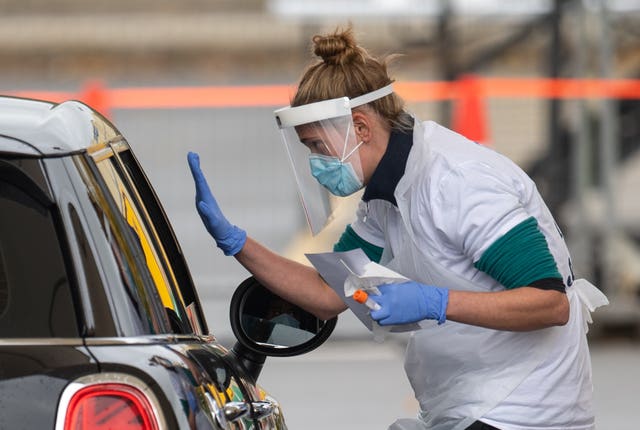Covid: What light is there at the end of the tunnel?
Options on the horizon could help bring the outbreak under control.

Prime Minister Boris Johnson has said that there is “light at the end of the tunnel” in tackling coronavirus.
But with England going back into a national lockdown what is there on the horizon that could help bring the outbreak under control and allow life to return to some kind of pre-pandemic normality?
Here the PA news agency looks at a few things which may help tackle the virus.
– A vaccine
If a successful vaccine for coronavirus is found it could reduce the number of deaths and people being admitted to hospital.
There are currently more than 200 coronavirus vaccine candidates being tested around the world with 44 at clinical trial stage.
There are two front-runners in the Covid-19 vaccine race – one from German biotech firm BioNtech and US pharmaceutical company Pfizer, and another being developed by the University of Oxford and AstraZeneca which are both currently in Phase 3 of clinical trials.

Before any vaccine comes to the market, regulators have to confirm it is safe and effective.
Covid-19 vaccines could be rolled out in the UK within the first half of next year, with the NHS to prepare itself to deliver doses by Christmas “if they become available”.
After successful trials, vaccines could begin to be delivered at GP surgeries, pharmacies and mass testing centres.
But health chiefs say a mass vaccination programme is unlikely to get under way before next year.
The head of the UK’s vaccines taskforce, Kate Bingham, has said that data from the vaccine trials at the University of Oxford and AstraZeneca, and Pfizer with BioNTech, could be available this year.

She said she has 50% confidence that, by Easter or the early summer next year, all vulnerable people in the country will have a vaccine that will have some impact on reducing the dangers of Covid-19.
Most experts are optimistic that a vaccine is likely to become available by mid-2021, which would be around 12-18 months after the new coronavirus first emerged.
Professor Andrew Pollard, who is the head of Oxford’s vaccine trial team, told the Science and Technology Committee a vaccine that is at least 50% effective could “halve the number of deaths or hospitalisations here in the UK”.
– Better treatments
At the start of the pandemic very little was known about how to treat coronavirus.
Now there are a number of treatments available and more studies being carried out into possible ways to combat the virus.
Thanks to the UK-led Recovery trial, which includes 176 UK hospital sites, a cheap steroid called dexamethasone was found in June to save the lives of people with severe Covid infection.

The widely available drug, which is now being used globally, was found to cut the risk of death by a third for patients on ventilators.
For those needing some form of oxygen treatment but not a ventilator, it cut deaths by a fifth.
Patients in UK hospitals now have access to dexamethasone if their doctors feel they would benefit from it.
Antiviral drug Remdesivir, that was first developed as a treatment for Ebola, has also been proposed as a treatment after clinical trials have shown the drug cuts the duration of symptoms from 15 days to 11. But a World Health Organisation (WHO) clinical trial found it had “little or no effect” on a hospitalised Covid-19 patient’s chances of survival.
The Recovery study, co-ordinated by the University of Oxford, is also looking at a number of possible treatments including Regeneron Pharmaceuticals’ experimental antibody drug REGN-COV2 which was given to US President Donald Trump.
It is also testing the antibiotic Azithromycin, anti-inflammatory drug Tocilizumab, and convalescent plasma as well.
– Population-wide testing
Mr Johnson hopes that a mass testing campaign, using equipment which can deliver a result in a matter of minutes, could be a route out of the coronavirus crisis.

A two-week pilot scheme in Liverpool will see half a million people offered regular testing from Friday, with 2,000 military personnel helping with the logistics.
Everyone who lives or works in the city will be encouraged to get tested for Covid-19 even if they do not have symptoms.
If the pilot is a success, millions of the tests could be distributed by Christmas, Mr Johnson said.
Lateral flow tests, which give results in under an hour – alongside existing swab tests, and Lamp (loop-mediated isothermal amplification) technology for NHS staff – aim to find asymptomatic cases in order to help prevent and reduce transmission in the community.
Results will be received from NHS Test and Trace via text and email. Those who test positive and their contacts will be asked to self-isolate in the usual way.





